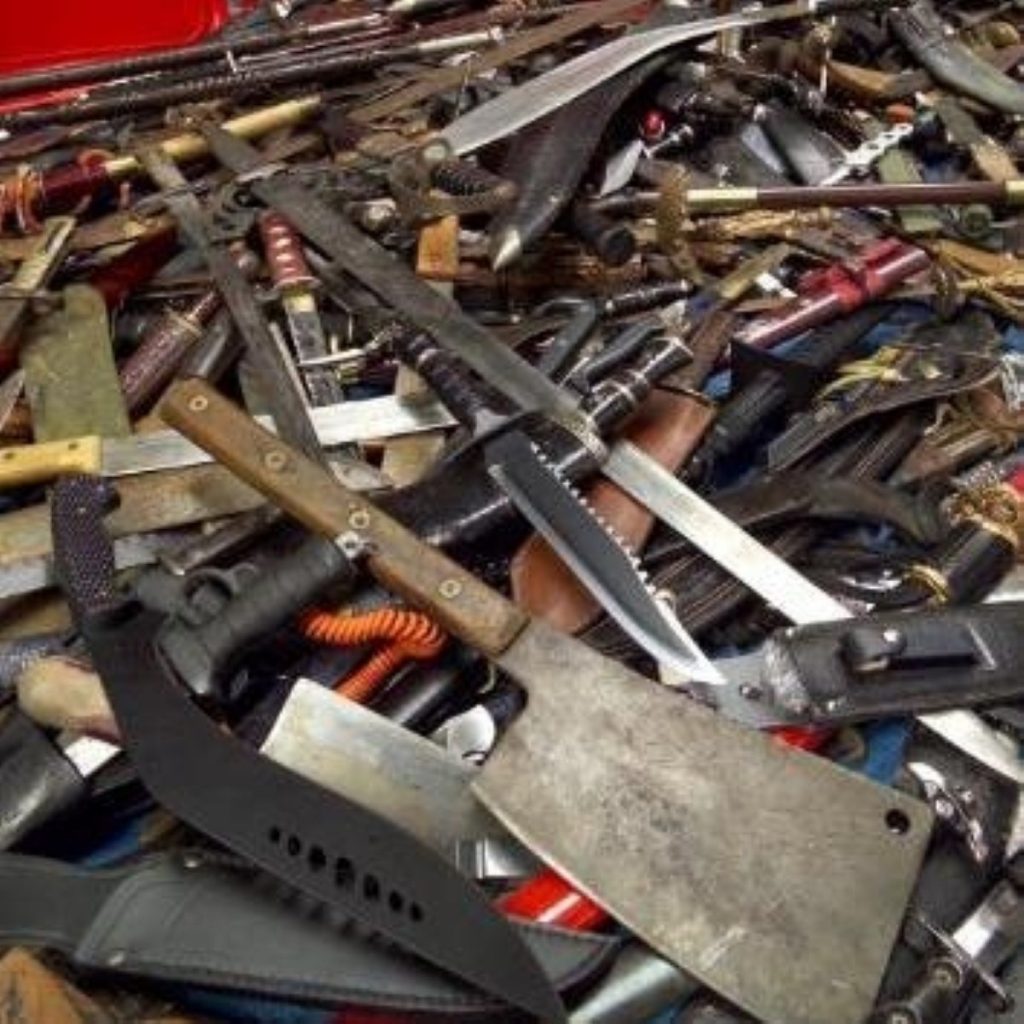‘Knife race’ developing on British streets
By Gabriel Huntley
A knife ‘arms race’ is developing on Britain’s streets, an influential committee of MPs has warned.
The Home Affairs Committee also said that carrying knives has become ‘normal’ among some young people.
Many young people are thought to be carrying knives because of a perception that others are doing so, the MPs said.
“We are seeing a spiralling of the arms race as far as knife crime is concerned,” Keith Vaz, chair of the committee, said today.
“Young people carry knives because they fear that others are carrying knives. This spiralling of knife possession puts all young people at risk.
“Too many tragic deaths have occurred because of this. We have to stop this arms race.”
Although the number of young people carrying knives is small, the number of murders involving knives and hospital admissions following knife injuries have risen considerably in the past three years.
There is also concern that knife carrying is occurring at an increasingly younger age, with instances of children as young as seven doing so.
The committee advocated tackling the root causes of knife crime, particularly the lack of faith in police and parents as protectors for some young people.
Sensationalist media coverage of knife crime was criticised for increasing the fear which results in young people carrying knives for protection.
Prison sentences for knife possession were recommended by the committee, but only if backed up by work with prisoners and offenders to change behaviour.
Chris Huhne, Liberal Democrat home affairs spokesman, urged the government to move away from prison-based approaches to tackling the problem.
“This report rightly suggests that knife crime is far too complicated a social problem to be solved with threats of prison alone,” he said.
“We need to move away from political posturing towards what we know works to combat knife crime.”
The committee recommended tighter regulation of violent video games and DVDs, but rejected the option of metal detectors in schools, claiming it would increase the fear and uncertainty which can foster the use of knives.
An emphasis on prevention would require targeting children in school, with the transition from primary to secondary education being identified as the key time when children are first exposed to knives.
The committee recommended special lessons and assemblies focusing on the impact of knife crime on victims and offenders’ families.





-01.png)